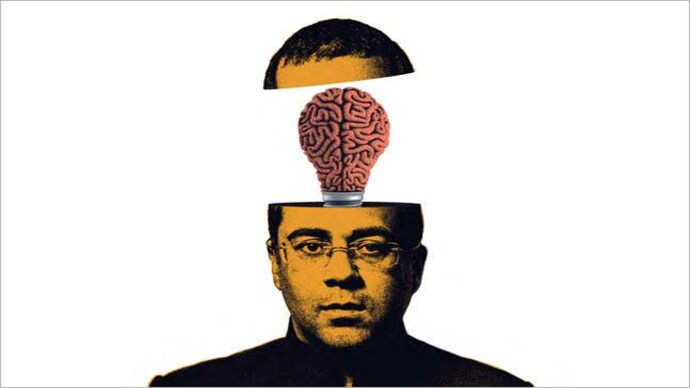Chetan Bhagat's solutions to India's problems are well-meaning but naive, even problematic
In 2012, Bhagat published his first non-fiction book, What Young India Wants, an anthology of his newspaper columns.

Chetan Bhagat today is much more than India's best-selling writer of popular fiction. He is seen to represent the youth of "middle India", that place between the village and the global metropolis.
Bhagat takes that role seriously, travelling across India as a motivational speaker and writing columns. The biographical note in this book says he quit his banker job to write and to "make change happen in the country".
In 2012, Bhagat published his first non-fiction book, What Young India Wants, an anthology of his newspaper columns. This book is the second such anthology, though it carries no acknowledgement that these are previously published articles. When What Young India Wants came out, I met Bhagat on a TV show where he told me the book was selling more than his novels, something he wasn't happy about.

Like Bollywood, Bhagat believes in being ahead of the curve. As a result, he comes across as an avant-garde intellectual who defines the times, instead of being led by them. Between 2012 and 2014, Bhagat had not-so-subtly begun to endorse Narendra Modi. In this book, he has declared that his hopes have turned into despair.
He divides Indians into three categories, making Justice Katju-like precise counts of each: 80 per cent are "Self-focused Indifferent Indians", 16 per cent are "Caring but Aligned Indians" and just 4 per cent are "Caring Objective Indians". Bhagat himself is in the top 4 per cent, and you could get there, he suggests, if you pick up this book.
The purpose of this formulation is to say that Bhagat isn't sold to Modi or the BJP for life. He isn't "aligned" but "objective". This also answers the charge that people like him are "fence-sitters, opportunists, or indecisive, confused, contradictory or weak".
The "ebbing Modi wave", Bhagat writes, is symptomatic of the "hope and disappointment cycle", the way out of which is a shift in "societal values, culture and habits". This will make India awesome-a term Bhagat wants taken seriously. So we have "awesome governance", "awesome society", "awesome equality" and so on.
The trouble with this guru-speak is that Bhagat's solutions are actually very banal and unoriginal. He tells Modi to learn from the Delhi election results. The Congress should delegate power. We should stop seeing fair skin as superior. Women should stand up for property rights. We should get rid of the politics of caste and religion to integrate with the world. We should build low-cost housing for the urban poor. And so on.
There is nothing here that your neighbourhood uncleji doesn't tell you in the park. Like the neighbourhood uncleji, Bhagat is well-meaning but nave, and often ends up saying some very problematic things. He chides the "educated middle class" for thinking that low-caste and Muslim voters are foolish to vote for corrupt politicians, thus presuming that the "educated middle class" is not a beneficiary of corruption. The oppressed, he writes, vote for the corrupt because they have other priorities such as identity and safety. This is their revenge upon the rest of us.
He chides Indian men who don't marry working women. Indian men should marry working women for five reasons, only the fifth of which has to do with her being happy. The first four are that you'll be able to discuss your career with her, she'll bring home money, she will bring back knowledge and information of the world that will help the family, and the children will be more independent.
He writes about women, Muslims and the subaltern castes with their best interests in mind, but without realising how he is othering them. His voice is that of the educated middle class, which is casteless and pure of corruption.
The saving grace is that his heart is in the right place. It is important that a writer as widely read as Bhagat tells men to see women as human beings, or argues for decriminalisation of homosexuality.
If Chetan Bhagat was trying to make India awesome 20 years ago, he would have been a fervent writer of letters to the editor. For all its flaws, this is an important book to read if you haven't already read it in installments.
Shivam Vij is a journalist
